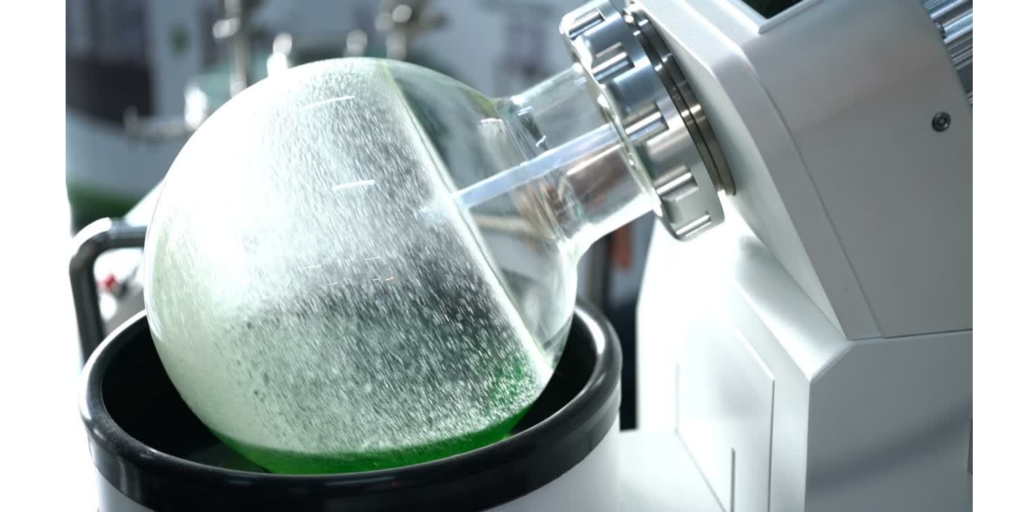Learning More about Solvent Recovery and Distillation

What are Solvents and how does Solvent Recovery happen?
The term ‘solvent’ refers to several chemical substances which are used to dissolve or dilute other substances or materials. They are usually organic liquids. Solvents usually have a low boiling point and evaporate easily or can be removed by distillation, thereby leaving the dissolved substance behind. Solvents should therefore not react chemically with the dissolved compounds—they must be inert.
Solvent recovery methods are used to separate and recover solvent from other liquids. Removal efficiency can be very high using this process and can be used for solvent mixtures as well as single solvents.
Solvent recovery is best suited for applications dealing with expensive or easily recoverable compounds. Recovery is economical if the recovered compounds can be reused in a process.
The most common variations of solvents found in the industrial manufacturing and processing are as following:
- Aliphatic hydrocarbons | pentane, hexane, and heptane
- Alicyclic hydrocarbons | cyclohexane and methylcyclohexane
- Aromatic hydrocarbons | benzene, toluene, xylene, ethylbenzene and styrene
- Halogenated hydrocarbons | methylene chloride, chloroform, trichlorethylene, carbon tetrachloride, dichloroethane, freons and trichloroethane
- Alcohols | methanol, ethanol, isopropanol and butanol
- Glycols | ethylene glycol and diethylene glycol
- Ethers | methoxy ethanol and butoxy ethanol
- Esters | methyl acetate, ethyl acetate, isopropyl acetate and methyl methacrylate
- Ketones | acetone, butanone, hexanone and cyclohexanone
Currently, the most popular solvents for cannabis extractions are butane, propane, and ethanol. These hydrocarbon solvents are chosen over other solvents because they are economically superior for producing high-quality extracts at an accelerated rate, safely.
The most sustainable and economical solution for organic solvent recovery is distillation. The raw material is subjected to vacuum to reduce its boiling temperature and the heat required in the distillation equipment. Depending on the level of contaminants in the initial raw material, the temperature and vacuum pressure can be adjusted to efficiently achieve Solvent Recovery.
Want More? Watch our video on how we used the Digivac VPC in distillation below, click here to check out our Vapor Pressure Controller!

